Entretien avec
Suzanne Donahue & Mikael Sovijarvi - Gods In Spandex - Gods In Polyester
Existe aussi en Version Française
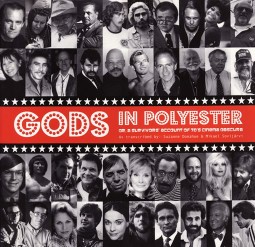
Suzanne Donahue and Mikael Sovijarvi are the authors of Gods In Polyester and Gods In Spandex, two books that offer a brand new look upon unknown cinema. "Brand new" because they allow those whose speech counts most to express themselves: the actors and directors who made these movies. Expect no analysis nor harsh criticism, but a huge number of testimonies which offer a new, interesting enlightment. Reading the amount of work done by these Finish cinema addicts, we wanted to find out more: where, how, when, why, who? The answers to all these questions are in this interview, fulfilled with plenty of obscure cinema references.
Interview conducted by Labroche and translated by Nikita in January 2008.
Could you briefly introduce yourselves?
MIKAEL: I'm me. 33 years of age, a starving artist trying to make a living selling newspaper subscriptions on the phone. Technically I should be a graphic designer working in an advertising agency but it's best for the world that I don't. A Finnish passport. Lived here, there, everywhere. Nomadic, talk too much, irascible, a mood-swinger, noxious personality. Easy to hate but near impossible to love. Love my cat, my friends, outsider art, outsider music and outsider movies. The single good quality I have is that I never give up on anything I genuinely want to do. A bulldozer. But I'm not really interesting. What I am means nothing. What I do means everything.
SUZANNE: I'm pretty much the opposite of most human beings on the planet, and have been since the moment I was born some 30 odd years ago. I don't think like other people. I don't express myself like other people. I don't dress like other people. I refuse to grow up. I certainly won't conform. And I have never, ever believed in the notion of "guilty pleasures." What's important to me is generally of no consequence to the majority of folks I meet, and vice-versa. The things I collect and have a passion for most people either don't care about or don't know about. All of which has somehow made it possible for me to earn a living as a writer, and at the end of the day it doesn't get much better than being paid to talk about the films, music, books, comics, and toys I adore. Of course, I have on many occasions been called a "problem person" due to all of the above, but those I care about (including my movie-loving little black kitten) can grin and find as much fun in the aptness of that description as I do. Still, better a problem person than a boring one. So while a lot of other folks spend their afternoons eating Big Macs, trying on the latest Nikes, and downloading ringtones onto their cell phones, I'll continue to spend that exact same time doing things like helping to build a Hy Pyke tribute page on MySpace and watching every Filipino action movie Richard Harrison has ever made. Vive la différence.

Could you tell us a little about your cinematographic tastes?
MIKAEL: I grew up on and still love 30's and 40's classic Hollywood flicks and Finnish films of the same era that my grandparents used to watch. Bogart, Bacall, Ida Lupino, Boris Karloff, Tauno Palo, Ansa Ikonen, Regina Linnanheimo. The last three names mean absolutely nothing at all to the most of you. Beyond that, I'm stuck with the 60's-70's era of experimental/arthouse flicks (have to namecheck Kenneth Anger here), hippy-trippy psychedelics, dystopian science fiction and most of all "out there" American and European low-budget horror. There's a particular kind of vibe about films like Death Bed: The Bed That Eats, a sense of total unpredictability, that I can't really get out of anything else. Maya Deren and Anger come close but not quite. And yes, I also get a kick out of the Kinavesa/Silver Star flicks for their total absurdity.

SUZANNE: Every weekend of my childhood was spent at the nearby drive-in, where I saw a great many of the American horror, sci-fi, and blaxploitation films featured in Gods In Polyester on their initial runs. Talk about love at first sight! Then a rather amazing independent video store opened up near our house, and the owner turned me on to the European and Asian movie scenes right away. I would come home with bags full of Italian post-nukers, Spaghetti Westerns, kung fu flicks of every variety, jungle actioners, giallos, you name it. Around the same time, a local television station started running Godzilla classics, Vincent Price/Barbara Steele gothic scares, and black-and-white monster movies daily. So needless to say, it wasn't long before my film collection grew into the apartment-swallowing creature it is now. Honestly, I love everything from Lynch to Hitchcock to silents, and as a rule I try and see each new movie that comes down the pike because I always want to have an informed opinion. But it's the weirdness, darkness, unapologetic boldness, and outright zaniness of the 60's/70's/80's worldwide independent film scene that still holds the biggest soft spot in my heart. Those are the flicks I can never get enough of.
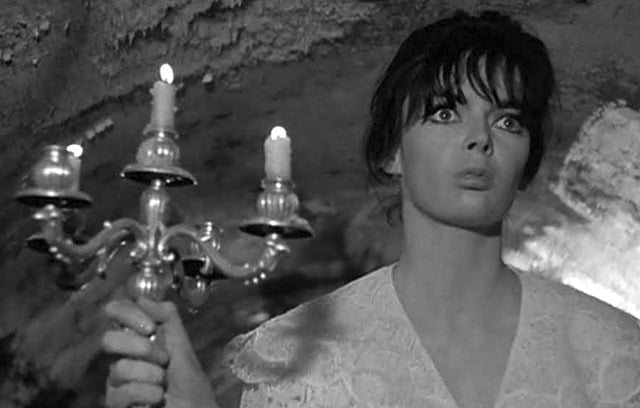 Barbara Steele.
Barbara Steele.
How did the idea of writing these books about B-movies come about?
MIKAEL: I was at a point in my life where I had spent a good ten years being stuck in useless part-time jobs and equally useless occasional "artistic" projects (which wound down to doing a poster or two for people I already knew once or twice a year, for basically free). A rapidly approaching midlife crisis coupled with a growing sense of being a complete failure made me want to do something megalomaniacal, insane and way beyond my abilities, otherwise I wouldn't have any worth as a human being. That became Polyester. Spandex was a natural continuation of that. The subject turned out to be obscure and generally forgotten B-movies because nobody else had done a similar book at the time and both of us were fans.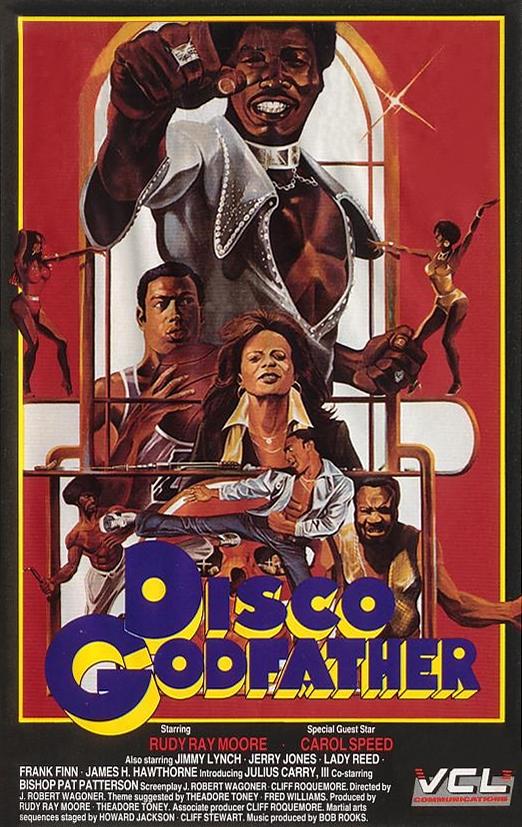
SUZANNE: We had been enthusiastically discussing these films for ages, and eventually got into a conversation about how neat it would be to track down the people involved — to find out what it was like making movies such as Lemora: A Child's Tale Of The Supernatural, Black Gold Dossier, Lovely But Deadly, Disco Godfather, and Satan's Children. Since neither of us is timid, one night we just decided to throw the 70's gauntlet out there and headed in the general direction of Google. At the outset, we weren't sure how many of these actors and directors could be found — and if found, how many would bother to respond. But when Richard Harrison, Leo Fong, Ed Adlum, Don Dohler, and Carol Speed all got back to us in less than 48 hours, the Gods In Polyester candle was lit. Gods In Spandex was almost a given for us after that because the 80's were filled with an equal number of little-known movie gems which we felt deserved some long overdue attention.
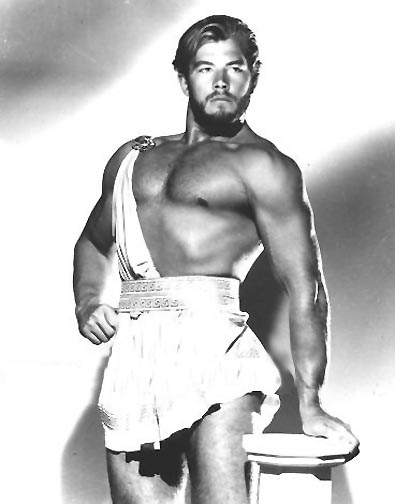 Richard Harrison.
Richard Harrison.
Both of your books deal with not so well known actors and directors. We know that finding those kind of people can be very difficult. Was it the case for you? Were there people in the book with whom you really wanted to get in touch, and who turned out to be especially tricky to lay a hand on?
MIKAEL: Not at all. Most of the contributors were found via Google and email. Sometimes, contributors put us in touch with others. William Shatner came through William Grefe, Richard Harrison through John P. Dulaney and so forth. Tracking down Hy Pyke took about a year and involved calling several senior citizen centers he had performed at, but everyone else was easy.
SUZANNE: Almost everybody we wanted to find had some link on the internet that could be easily pursued — whether it was a personal website, a business website, a prior interview, or some footsteps left on a message board somewhere. So we located most of the contributors for Gods In Polyester and all of the contributors for Gods In Spandex pretty quickly. 'Tis the beauty of the worldwide web. The internet definitely wound up being our best resource. And as it turned out, there were only a few Polyester exceptions to this contact rule. Bruce Glover and John Phillip Law needed to be reached first by snail mail and then by telephone, as neither of them spends much time online. In addition, Hy Pyke, George "Buck" Flower, Norman J. Warren, Laurel Barnett, and Felton Perry were all called first because we had phone numbers for them before email addresses. But that meant I had the chance to talk with all of these folks live, which is something I will always treasure. Such smart, funny, interesting people. As far as relations and networking go, the only contributor who came about that way was Alan Scarfe. On a whim, I contacted a gentleman with the same last name working at a Canadian university, and it turned out to be Alan's brother. That was just pure luck!
To what extent the Internet made the making of these books possible?
MIKAEL: Without Google, there would be no Gods In Polyester or Spandex. Period. Or the books wouldn't have been made by people with no connections and very little money.
SUZANNE: Almost everyone who was ever part of the 70's/80's independent film scene can be found in minutes on the internet, so the use of websites is invaluable for this kind of project. When I try to imagine doing Polyester and Spandex without the internet — trying to track down private mailing addresses and private phone numbers as non-Hollywood-based individuals, using outdated or inaccurate information from the back of fan magazines, etc. — the mere notion makes my head spin. There's just no way. These books would have remained ideas in our minds and nothing more.
How did these people react when you contacted them? I ask you this because we experienced the case of finding people who were astonished that someone, somewhere in the world, was actually interested in their career (Mike Abbott and Stuart Smith for example).
MIKAEL: Most of them were genuinely surprised that there was an interest in their career, let alone that anyone remembered who they were. This was especially the case with Polyester, which featured a lot of actors and directors who did one to three films, like Laurel Barnett, Robert S. Fiveson and George Barry.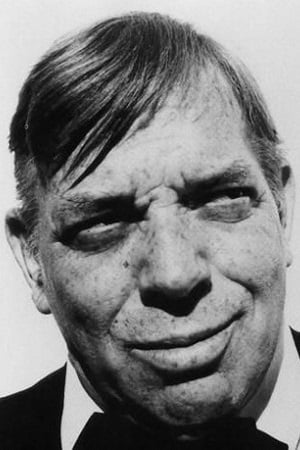 Hy Pyke.
Hy Pyke.
SUZANNE: There were basically three types of reactions. The first involved people who seemed completely shocked to be contacted at all. Hy Pyke and George "Buck" Flower certainly fell into this category, and both said the exact same words when I spoke with them: "Thank you for knowing who I am." How anyone could forget Hy or Buck is beyond me, but it nearly brought tears to my eyes just to hear that. The second involved people who had either almost forgotten about the films in question, or who had simply never been given the opportunity to talk about them. For example, Daphne Rubin-Vega got a genuine kick out of being reminded of her part in The Occultist, and Gary Graver had, by his own admission, been waiting to tell the Texas Lightning story for three decades. And the third type of reaction involved people who were contacted once in a blue moon to discuss the movie at hand, but who never got tired of doing so. Folks like T.G. Finkbinder (on The Redeemer) and Kenneth J. Hall (on Evil Spawn) fell into this category, and their initial emails echoed a similar sentiment: "Every once in a while someone comes around asking about this film and it always makes me smile..." All of these responses just confirmed for us that we were on exactly the right track with the books' contents.
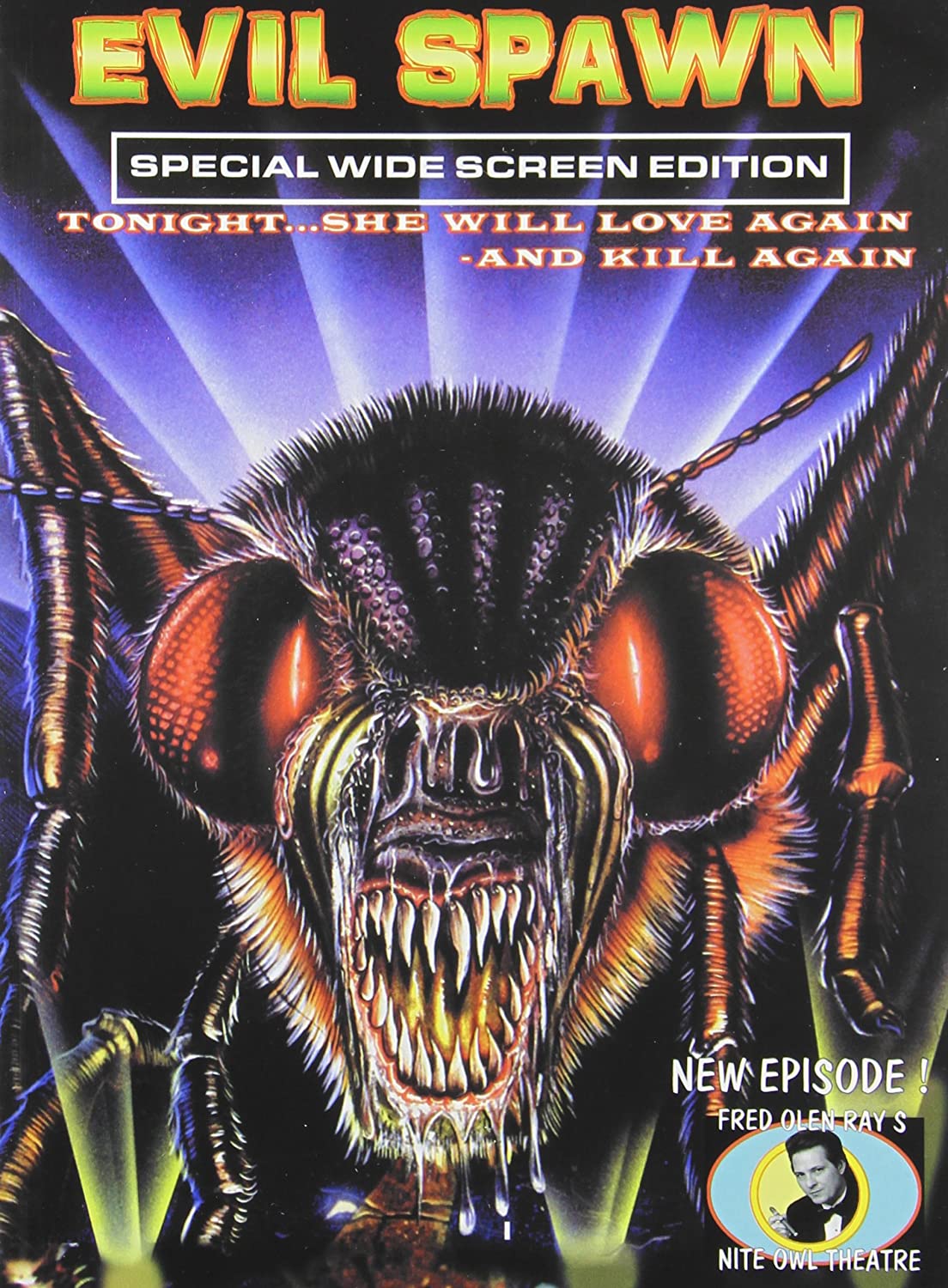
Did some people refuse to appear in the book?
MIKAEL: I think that the only person who refused to contribute to Spandex was G. Gordon Liddy [Nanarland: former American spy, involved in the Watergate, who became a radio host and occasional actor], whom we approached on Street Asylum. A shame, really. That would have been a historical event. There were a few others who were interested but asked for money, and countless people who never got back to us. Polyester happened so long ago that I've forgotten if anyone refused. I think that a certain American actor who enjoys a popular singing career in Germany didn't want to discuss his role as "Boner" in Revenge of the Cheerleaders, but I could be wrong [Nanarland: David Hasselhoff].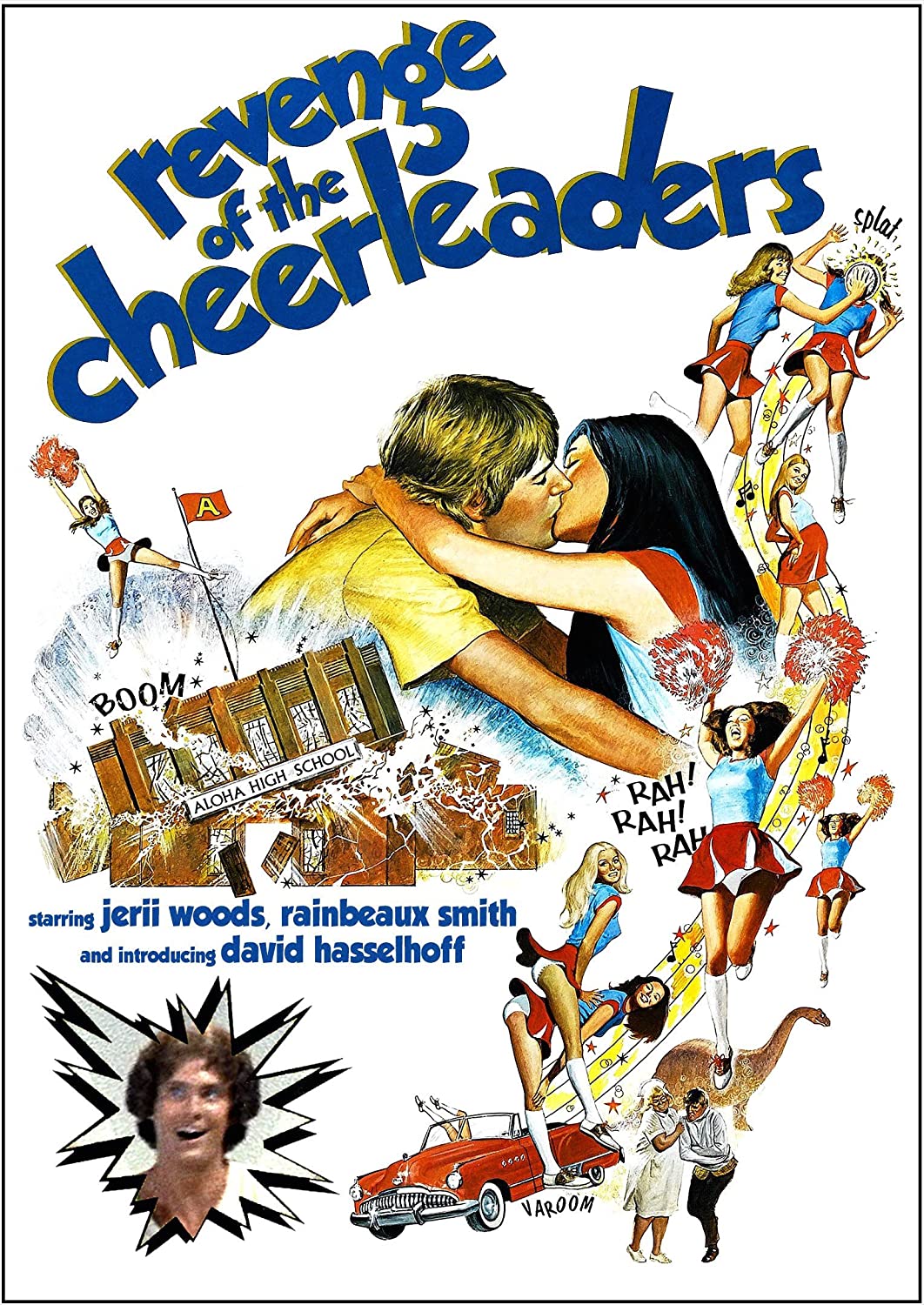
SUZANNE: It's true, some folks just didn't answer the emails we sent, and a couple simply couldn't finish their pieces in time for the Gods In Spandex deadline. But one person who refused our Gods In Polyester offer — other than the aforementioned "Boner," of course — was former porno star Harry Reems. I spoke with him briefly on the telephone, hoping we could convince him to write about one or two of the groovier 70's flicks on his resume. But alas, although Harry seemed like a nice fellow, he wasn't interested. So Inside Deep Throat will have to suffice, I guess.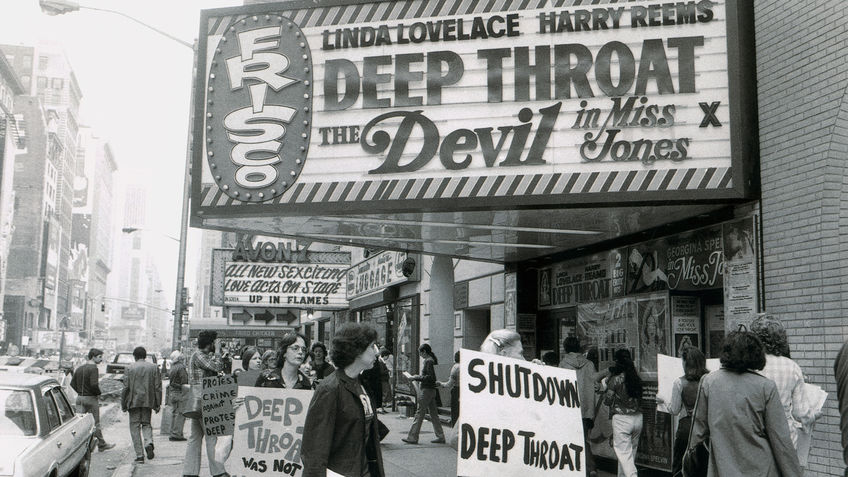
Who would have you liked to interview for the book that you did not manage to get in touch with?
MIKAEL: Robert Voskanian, the director of The Child, for Polyester. One of my favorite forgotten American horror gems from the 70's. A crude and amateurish film, but at the same time atmospheric and beautifully twisted. We never got in touch with him, but did manage to find Laurel Barnett to contribute on the film and Stephen Thrower tracked down Voskanian for Nightmare USA, so I think that everything that's to be said about The Child has been said now. For Spandex, basically anyone of the Silver Star/Kinavesa actors. Romano Kristoff, James Gaines, Bruce Baron, Mike Monty, Ronnie Patterson. Take your pick. Besides the people you've interviewed on Nanarland and what Richard & Sebastian Harrison and John P. Dulaney wrote for Spandex, that whole chapter of Filipino B-movie history is an enigma [Nanarland: over the years, we managed to interview Romano Kristoff, Nick Nicholson, Bruce Baron, Mike Monty, Don Gordon Bell and a few others]. What little I know makes me want to know more. The people who made those films really were a different breed. To everyone who's reading this right now: go to www.fearzone.com and read Sebastian Harrison's piece on Fireback there for free. It really couldn't get any better. Or funnier. Or more absurd.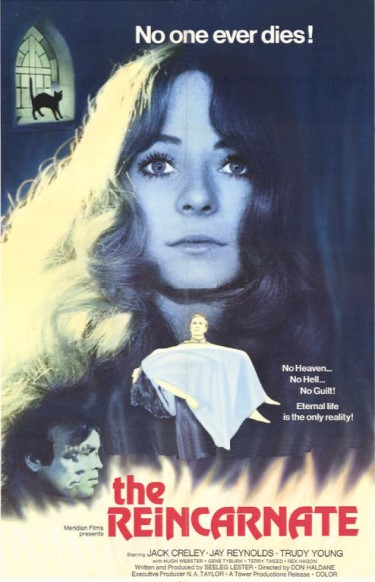
SUZANNE: Aside from the people Mikael has just mentioned, I was really hoping we could get the late Jack Creley to talk about making The Reincarnate (1971). Very few people have actually heard of that film, but it's one of my favorites from the 70's and features a hairpiece that has to be seen to be believed. We did manage to track down Gene Tyburn, who co-starred with Creley in the movie, but he couldn't even remember being in it in the first place. Rip Torn's thoughts on another little-known flick called Scarab (1984) would also have been extremely welcome. His psychedelic monologue at the beginning of the movie is the stuff of legend. In addition, I must add the late Aldo Ray and Cameron Mitchell to the list. These two gentlemen were so prolific in Gods In Polyester and Gods In Spandex movie territory that I have no doubt their stories would have surpassed even my wildest expectations. And last but not least, Andrew Prine should be mentioned here. Simon: King Of The Witches (1971) is easily in my top three films of all time, and while director Bruce Kessler was kind enough to provide a lot of information on the movie for Polyester, Mr. Prine's perspective is something I remain very curious about. He gave a performance worthy of awards in every language including Aramaic.

How long does it take to make such books (from the original idea, to the 1st sale)? What are the main steps?
MIKAEL: Anything from six months to three years to come up with a reasonable number of contributors and wait for them to finish their pieces. After that, anything from two weeks to two months of sleepless nights, no food, and wrecked nerves to finish the layout. Whatever time it takes to find a ridiculously cheap printer who won't fuck up the books completely. The good people at Headpress in the UK had already sold Polyester, so it didn't take too long to find a store/distributor willing to carry Spandex. The books are printed here in Finland, and the audience is located almost completely in the UK and the States. Having a distributor abroad is a necessity.
SUZANNE: It's kind of like putting a big puzzle together. Once you have the idea, you'd be surprised at how quickly the list of potential films and people to talk about them falls into place. Just start with your favorites in each genre and the possibilities grow easily from there. Plus you can always be doing one thing related to the project while waiting for another, which saves a lot of time. For example, while the contributors are writing their pieces, you can play with ideas for the cover design and interior layout. When a new piece comes in, you can edit and proofread it right then instead of waiting until the end to do all of them at once. While everything is at the printer, you can decide where the review copies are going and what stores might be interested in stocking the book. And I cannot stress enough how important it is to have reviews in magazines (both printed and online) and on websites. This step is essential if you're going to sell what you've done. People need to know about it before they'll buy it, plain and simple.
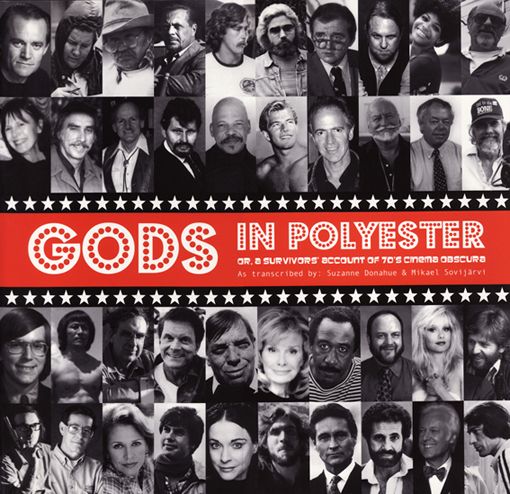
Have you encountered difficulties due to the subject you chose (in other words, how did people react when you talked about your project of writing books about obscure cinema to editors, friends, etc.)? Would you qualify this project as "easy" or "hard" to build?
MIKAEL: No. I don't really talk much about my, eh, "artistic pursuits" with others, this is a part of my life that I keep almost entirely to myself. I have friends I've known for years who don't even know I do these things. People who aren't my friends think I'm completely insane. People who are my friends think I'm not entirely sane. C'est la vie. Life is life and when it's over so are you. The hardest part is coming up with the money to pay the printer. Doing things like Spandex isn't exactly a road to riches and neither is my day job. Everything else is easy. Don't talk about doing something. Do it. Easy.
SUZANNE: My general philosophy of life is to spend as much time as possible working/playing with people who "get me," and as little time as possible working/playing with people who don't. So while I never make announcements about my personal creative projects because I find human beings who spam themselves all the time to be extremely unpleasant, when friends and colleagues have found out about Gods In Polyester and Gods In Spandex they've been 100% supportive. Some of these folks share my taste in film, and the rest have the courtesy to respect it, but all of them know how passionate I am on the subject and therefore also know that I'll throw everything I have into the books I do. So there's never a problem with the subject matter. And as far as easy or hard, it's a piece of cake when you have the opportunity and the privilege to create something out of what you love. Just decide and go. The rest takes care of itself.
There are in your books tons of wonderful anecdotes about obscure cinema film-making. What is the one that you preferred / that astonished you the most / that you find the most touching?
MIKAEL: Everything Hy Pyke wrote for Polyester and Spandex. He was a true original as an actor, writer and a human being, and a walking embodiment of the 60's-70's counterculture era which has a special place in my heart. The closing words to Pyke's piece on Lemora in Gods In Polyester really got to me. "France loved the idea of a tale envisioned in the hidden mind of a child with a crush on her pastor. During a brief choral of Rock of Ages, so did I. Cheryl, rest in peace." That's the most beautiful eulogy on Cheryl "Rainbeaux" Smith I've read so far. It was also astonishing to read that Killpoint had no shooting script. Neither had Fireback. While Killpoint is not necessarily the Citizen Kane of low-budget action films, the difference between it and Fireback is like the difference between Glen or Glenda? and Clockwork Orange.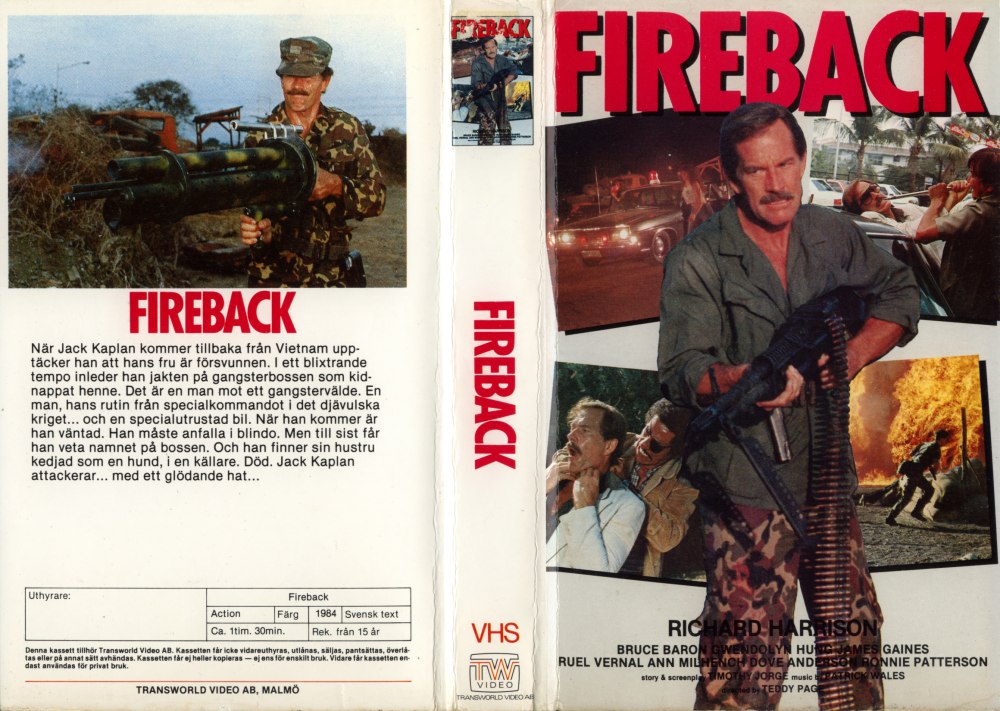
SUZANNE: In Gods In Polyester, one of my personal favorites is the late Gary Graver's piece on Texas Lightning. It's a brutally honest account of how the film he wanted to make was transformed into something else entirely by "the powers that be," and at the end you really feel an incredible sense of empathy for the man. Oddly enough, Graver's intended version of Texas Lightning — called The Boys — somehow made it onto cheap video in Europe, and I've had the chance to watch it and compare it with the version of the film most people have seen instead. It's like night and day... two different movies entirely. No wonder he was bitter. In Gods In Spandex, I have to give a big nod to Kenneth J. Hall's piece on Evil Spawn. It's hysterically funny and filled with so many bits of real life moviemaking absurdity that you'll never forget a word. By the time he gets to talking about the contributions of a porno maker who is responsible for such riveting titles as Return To Anal Castle and Boot-Licking Pony Boy, I guarantee you'll be rolling around on the floor with the most uncontrollable case of the giggles you've ever had.
 Gary Graver.
Gary Graver.
Sometimes, by getting in touch with people that you only know through films, you discover a person or a personality that you did not even expect to be so kind / funny / sincere. That was our case when we interviewed Max Thayer or when we met Richard Harrison, for example. Who in your books surprised you the most, and why?
MIKAEL: John P. Dulaney. Before Polyester & Spandex, he was "the guy with the beard who played Ballarin in the Nico Giraldi flicks," whom I knew next to nothing about. The man turned out to be a walking encyclopedia on Italian and Filipino B-movies with a dry sense of humor that I find very amusing. In my opinion, Dulaney's contributions on the Silver Star/Kinavesa films and Robowar are some of the funniest bits in Spandex. Since Gordon Mitchell has passed on, he is also the only living actor to have worked for both Federico Fellini and K.Y. Lim, which is, if nothing else, an amusing bit of trivia. Also, Jerry Ciccoritti was "The guy who did Graveyard Shift and agreed to do the book." I had no idea on what to expect from him. Ciccoritti's pieces ended up in my personal top five. An irreverent man who is wickedly funny. John P. Dulaney.
John P. Dulaney.
SUZANNE: Among the Gods In Spandex contributors, Jerry Ciccoritti really wowed me, too. And he's as much of a riot in regular emails as he is when talking about his films. A great guy all around. I was also completely surprised by Rolf de Heer. Beyond being a huge fan of Incident At Raven's Gate, I had very little information about the man other than that he lived in Australia. But his intelligence, humor, and warm spirit completely won me over. With Gods In Polyester, both Ed Adlum and Jeff Lieberman made me sit up and take notice — Adlum for having such a fantastic hindsight attitude about his films and Lieberman for being even more entertaining than a new batch of Blue Sunshine.
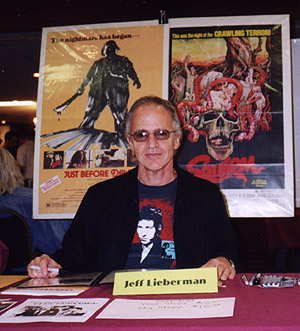 Jeff Lieberman.
Jeff Lieberman.
In the Gods In Spandex foreword, you write that "the era of low budget independent genre filmmaking was born during the late 60's, flourished in the 70's, came to a slow death with the 80's and is likely never to come again." Could you elaborate on this point of view?
MIKAEL: The Golden Age of the independent genre/exploitation/horror movie in the United States is long gone. The drive-ins are dead and the independents were swallowed by major studios, or turned out into factories churning out soulless imitations of the same crap the majors put out. There is no European genre scene to speak of outside of Spain. The occasional exception to the rule pops up every now and then but in general, there are no mad, driven visionaries or cynical snake oil salesmen putting out these low budget wonders. The eccentrics that made films like The Toy Box and Malatesta's Carnival of Blood don't gravitate towards genre films anymore. With horror in particular, all of the uninspired SOV Fulci, Romero and Hooper homages that I've had the misfortune to see over the past few years have killed off my interest in the genre almost completely. The films aren't interesting and neither are the people making them.
SUZANNE: Independent filmmaking now bears absolutely no resemblance to its 60's/70's/80's predecessors. On the one hand, you have people who call themselves "independents" but who actually have millions and millions of studio-style dollars at their disposal — money which, unlike in the past, does not have to be scraped out of the directors' own pockets or donated in pieces from friends, family, and local small businessmen. And on the other hand, you have the affordability of camcorder-style equipment — which means that anybody in the world can head over to Wal-Mart, pick up the cheapest microphone-ready model possible (preferably one where every environmental noise is abnormally loud and every line of dialogue sounds like it's coming from underwater), and then, with as little thought/drive/enthusiasm/vision/creativity as possible, slap together what I refer to as "non-movies." These "non-movies" have no personality, no style, no substance... not much of anything, really. In all honesty, you could watch paint dry and be substantially more entertained. By contrast, in the 60's/70's/80's independent film scene, you almost always had the distinct sense that these people were at least trying their very best to make a REAL film. It wasn't a weekend project to kill some time between football games. It wasn't something to do simply because they could buy the gadgets on sale. It was, in fact, something they believed in and something they attempted to make as unique as possible — with all of the blood, sweat, and tears effort to prove it. Big difference.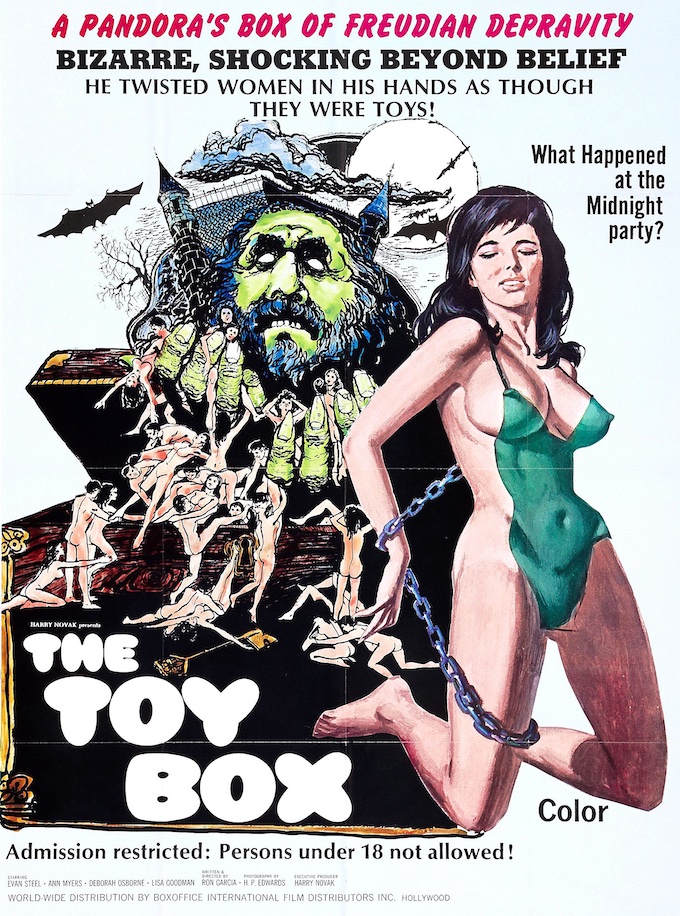
Could you tell us about your next projects?
MIKAEL: I don't believe in self-promoting anything until it's finished and ready to be published. Plugging away on projects that fizzle out or end up delayed for years is embarrassing. If Spandex sells reasonably, Gods In Polyester will be revised and put back in print with a revamped layout and probably a few extra contributors. As long as there is a demand and money to keep the books in print, the books will in all likelihood be kept in print. Nothing is definite. Other than that, I don't know where I'm going and what I'll do in the future.
SUZANNE: There is a new book project in the works featuring one of the contributors to both Gods In Polyester and Gods In Spandex; however, the specifics must and shall remain classified until the deed is done. As for other upcoming endeavors, you never know what might be around the next publishing corner. But of this you can be sure: no one will have ever done it before. That's a promise.

